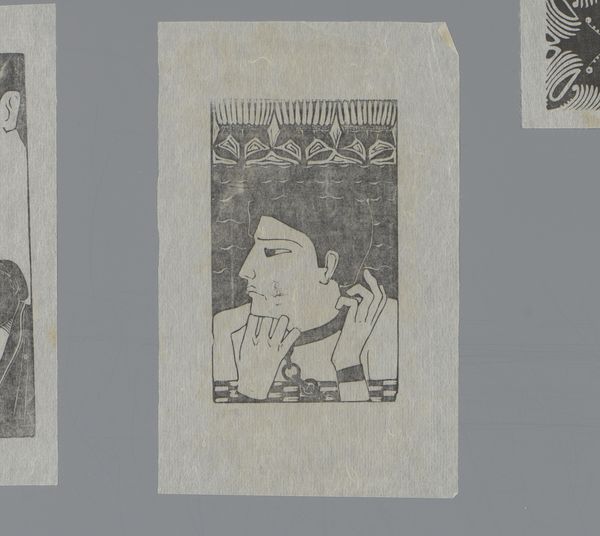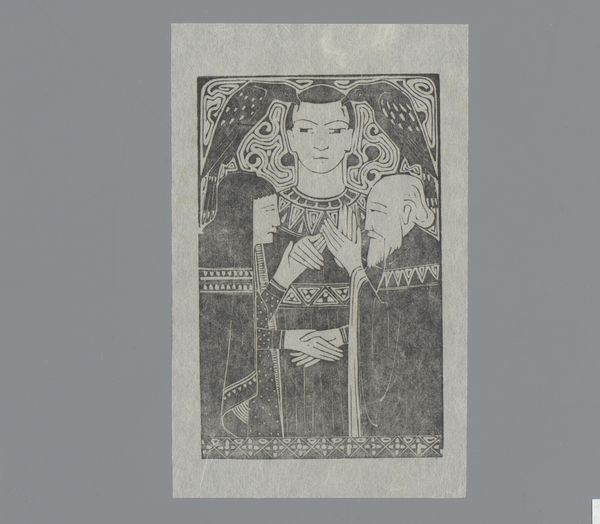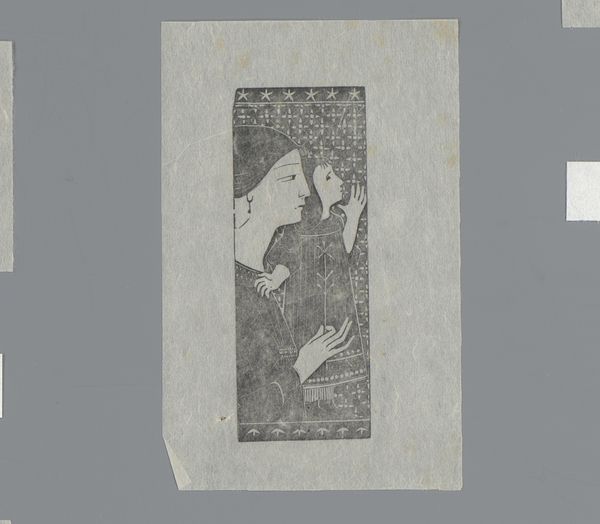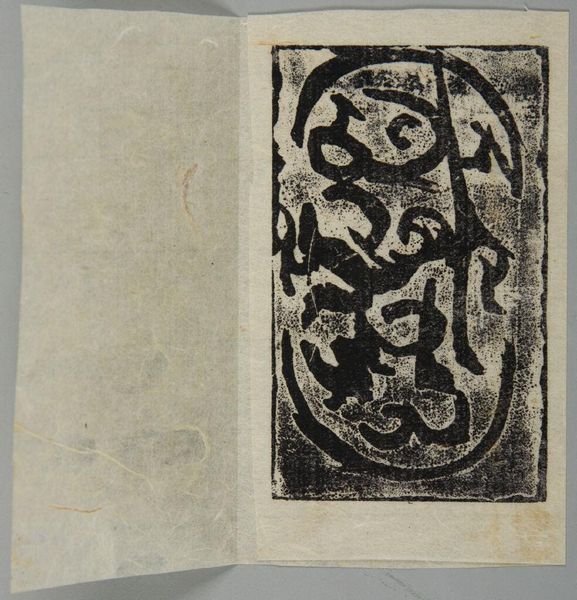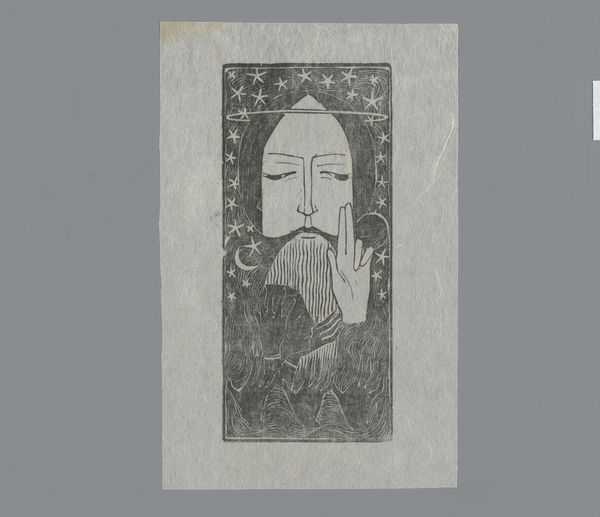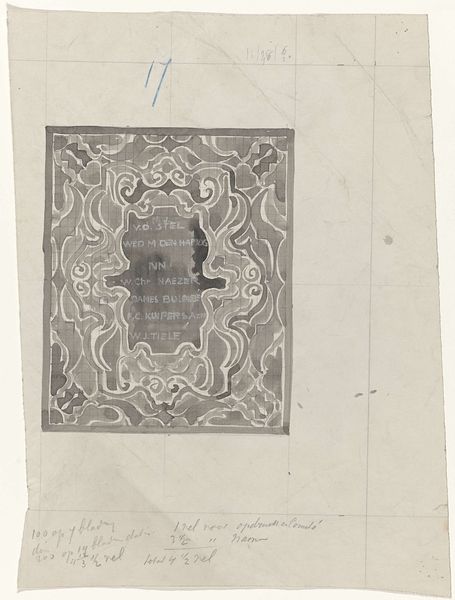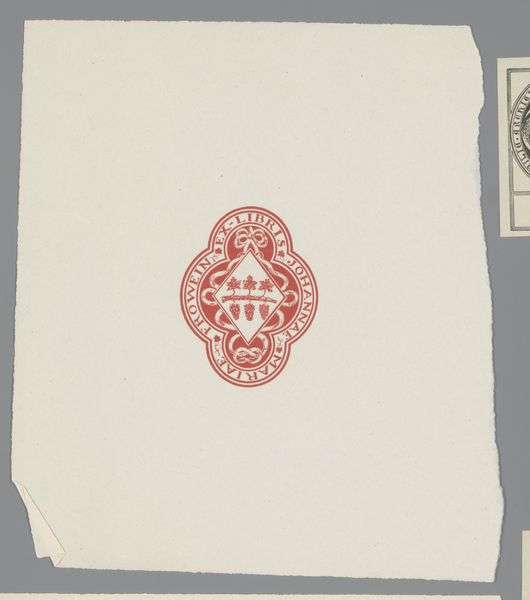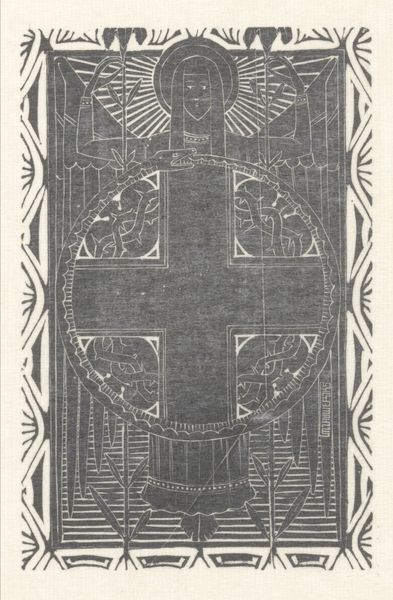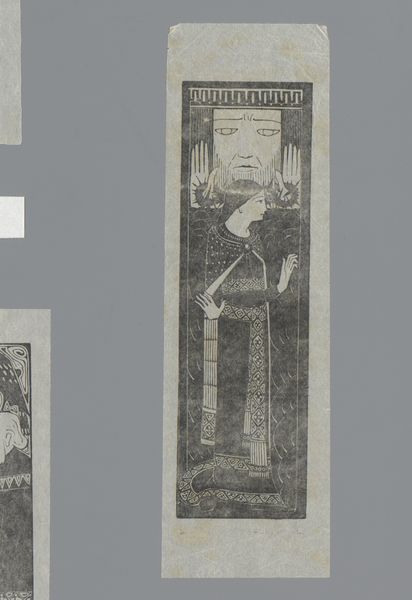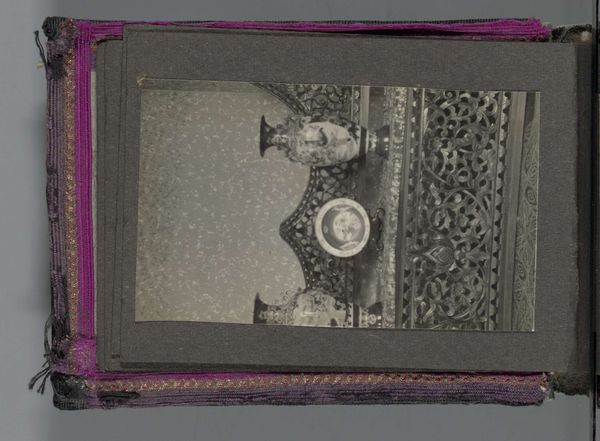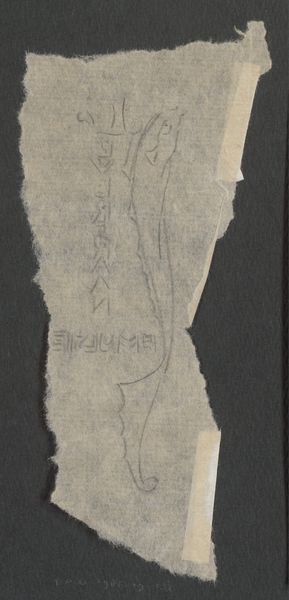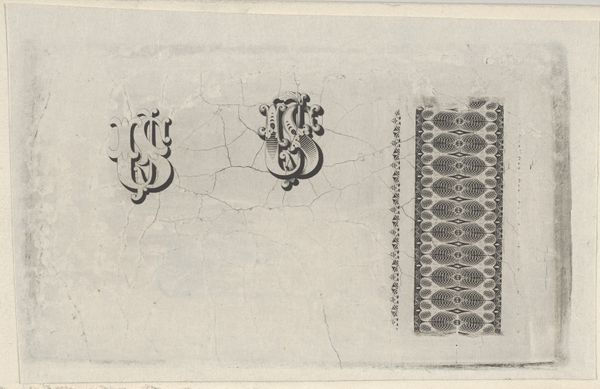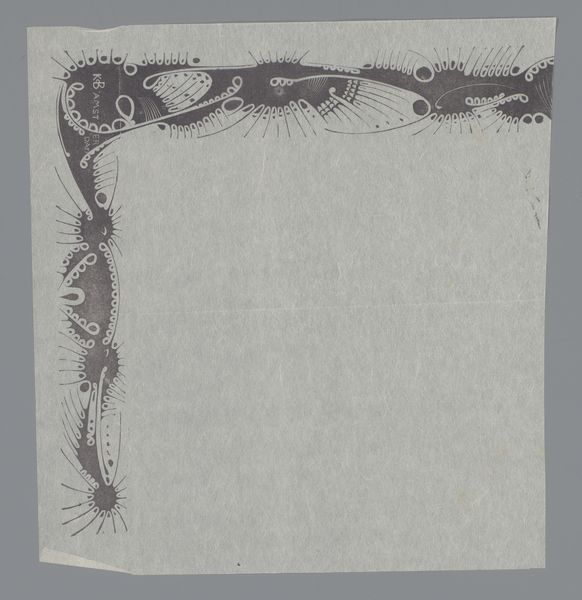
drawing, graphic-art, paper
#
portrait
#
drawing
#
graphic-art
#
art-nouveau
#
paper
#
line
Dimensions: height 115 mm, width 71 mm
Copyright: Rijks Museum: Open Domain
Curator: This is a graphic work by Karel Petrus Cornelis de Bazel titled "Tanhâ," created in 1895. It’s an interesting drawing on paper, employing a distinct linear style evocative of the Art Nouveau movement. Editor: Well, immediately I feel drawn in—a sense of serene watchfulness emanates from that central figure. The monochrome amplifies the mysterious ambience and stylized facial characteristics remind of the esoteric illustrations by Alastair. Curator: Precisely! The use of geometric patterns creates a captivating framework and if we analyze deeper into its form, note how each cross within a circle works, semiotically speaking, suggesting a certain type of symbolic defense and spiritual fortification surrounding the androgynous character presented. Editor: Yes, like personal talismans guarding its consciousness! Do you sense that echo of the Theosophical influence from that period with all its symbolism that was floating around, don't you think? I bet that Bazel used specific occult motifs that probably felt deeply charged for that late 19th-century context, perhaps even a nod to the spiritual seeking and mysticism. Curator: Good point. The rhythmic repetitions, a typical technique for Bazel, evoke that hypnotic atmosphere – the symmetry reinforcing the sense of ritualistic or esoteric meaning that perhaps could relate to Rosicrucian beliefs from the period as well. But he used graphic forms almost mathematically. Editor: True, the patterns certainly make your eyes dart. The overall design language possesses almost meditative qualities. It's hard not to wander within the repeating linear pathways as one thinks through how humans pursue enlightenment—fascinating the way an image rendered only in black ink can create such depth in mood and intellectual probing! Curator: In conclusion, it is a beautiful example of period graphic art, skillfully blending the aesthetic sensibilities of Art Nouveau with complex layers of meaning from different doctrines to engage the observer into a rich visual experience. Editor: I concur entirely! And I think my imagination's wanderings through the graphic elements show, to a modern audience as well, just how successful its symbolic imagery holds.
Comments
No comments
Be the first to comment and join the conversation on the ultimate creative platform.
